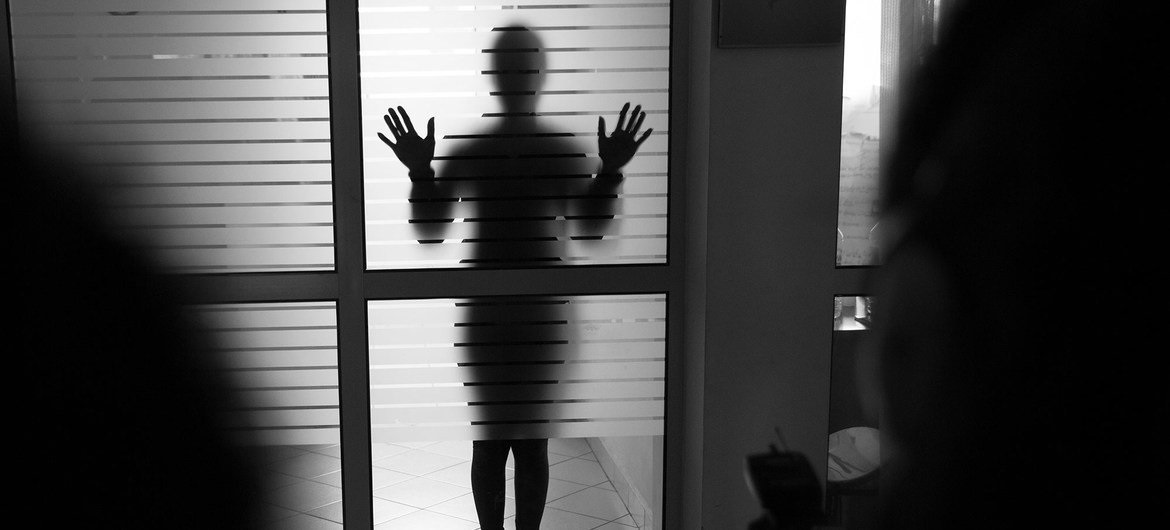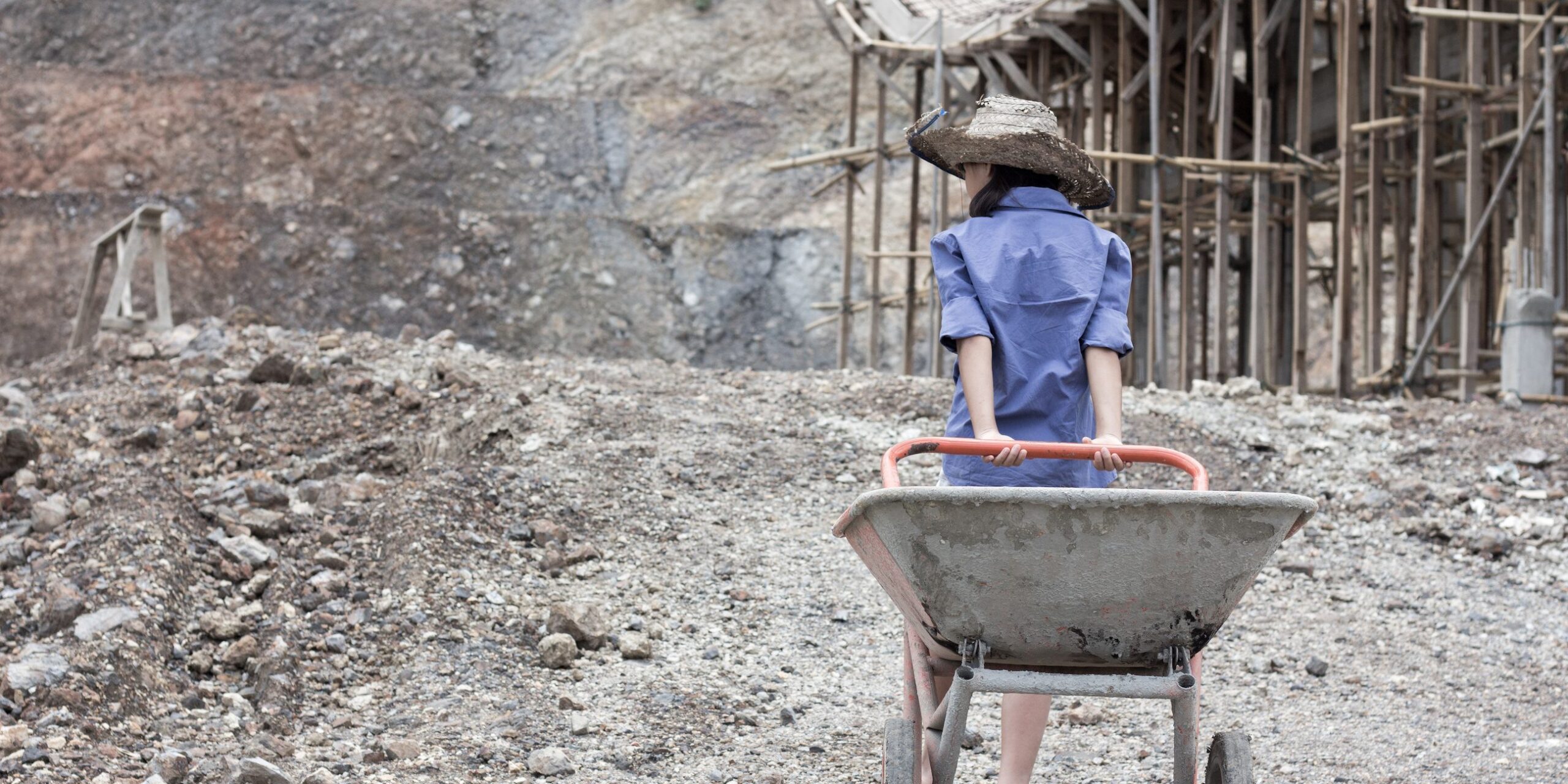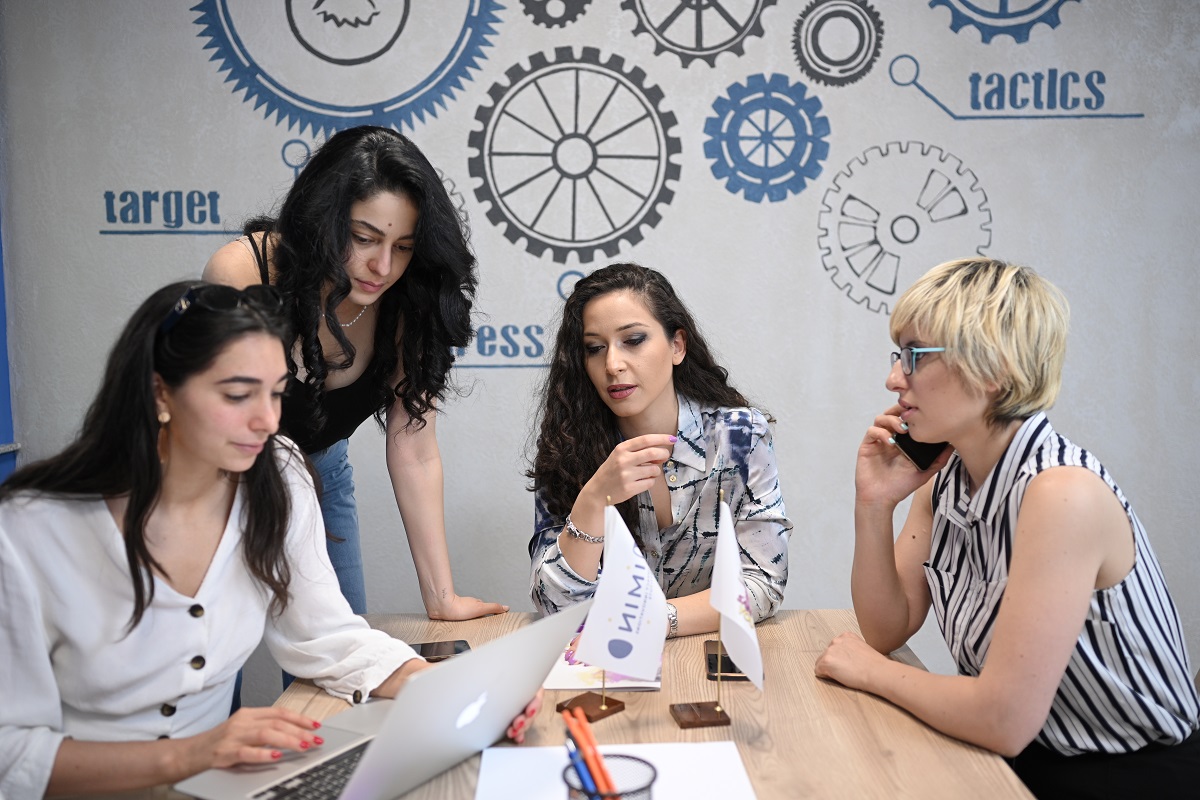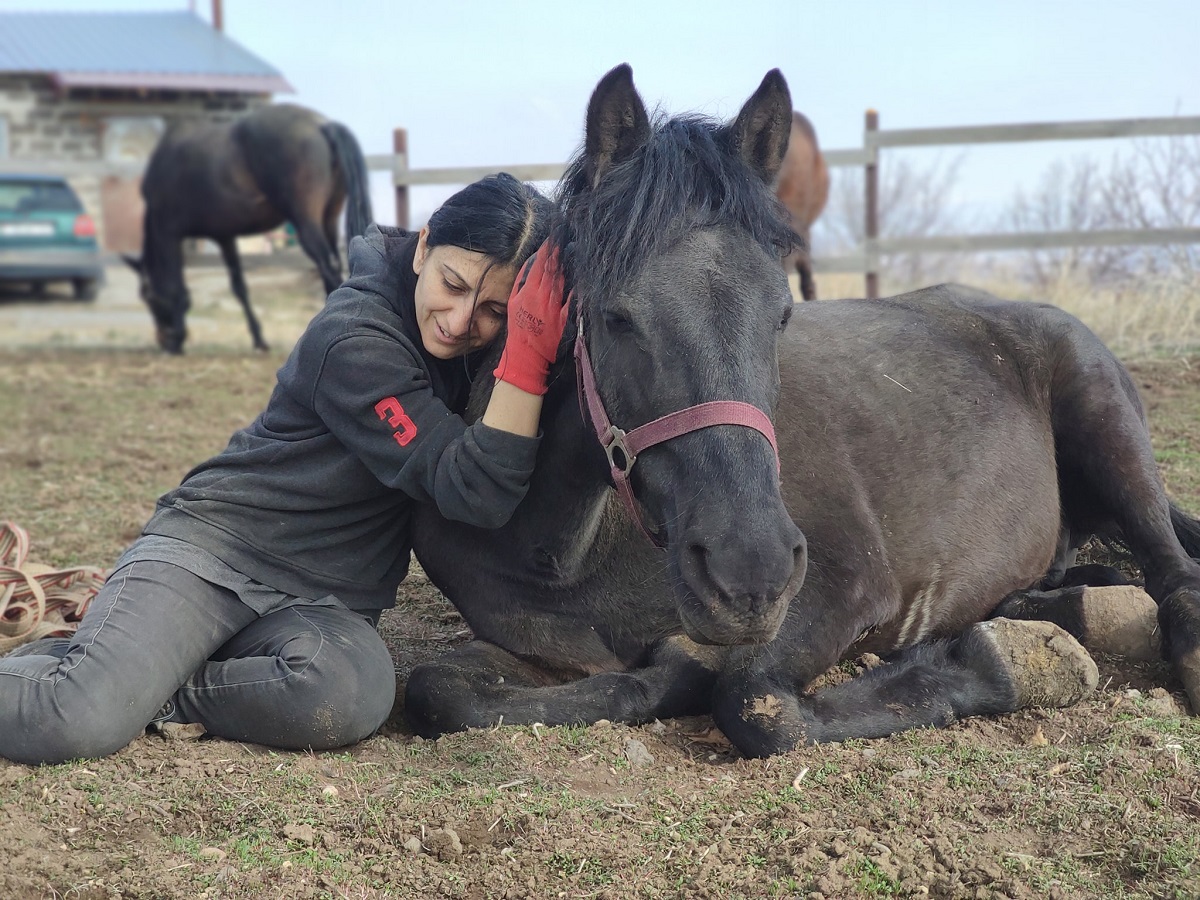'Only now do I understand what happened to me': human trafficking cases in Armenia
Human trafficking in Armenia: story and analysis
In the past two years, Armenia has recorded nearly twice as many human trafficking cases. This year, foreign nationals have also fallen victim. Reported cases include sexual exploitation of children, forced labour of people with mental health issues, and coercion to beg — and that is not an exhaustive list.
The report combines personal stories with an analysis of the situation based on local statistics and the US State Department’s findings.
- Silent violence: why is Armenia keeping quiet about child trafficking?
- ‘They need me’: the story of a father who was left alone to raise two toddlers after his wife’s death
- More tenderness than in youth: Stories of couples who have been together for half a century
“I wish I could look my trafficker in the eye on Judgment Day”: story of Ashot
“As long as I can remember, my mother was ill. Some days she felt fine, others she didn’t. When I was very young, we lived with my uncle’s family. Life was hard, and we barely scraped by. But the house was peaceful, and I felt safe. I loved my uncle very much. One day, we moved to a new apartment, and I still don’t know exactly why. That day is vivid in my memory: I walked into a room with only a sofa and a table. Another room had four chairs and a wood stove. My mother said, ‘This is our home now, and Albert is your father,’” recalls 24-year-old Ashot (name changed).
He says his stepfather was a good man while sober. He played with him and spent time with him. But everything changed when he drank:
“He never raised a hand against me or my mother. He wasn’t a cruel man. It’s just that when he was drunk, he lost touch with reality and seemed like he belonged to another world,” Ashot said.
Ashot lived with Albert and his mother for two years. His mother died on 1 September 2009, the day he started the second grade. That day also marked his last day at school.
A few months later, Albert told Ashot he had been offered a new job in a village. Albert said he had already visited the place and thought Ashot would like it too. The boy didn’t object — his mother was gone, and he had lost contact with his uncle two years earlier. Albert became his only family.
“We went to the village. They brought us to a beautiful house, and I thought that’s where we would live. But then I realised we were to stay in the barn — with the animals. It was a large livestock farm. At first, I enjoyed playing with the calves and skipping lessons. I didn’t understand what was really happening. I lived one day at a time, just like Abo.
I can’t remember exactly how long passed before trouble started. Abo got drunk again and took the owner’s combine harvester. I don’t recall the details, but I know he damaged it — I think he crashed it into a wall. That was the beginning of our troubles. That day, the owner beat Abo badly. His eyes and nose were bruised and swollen, and it stayed that way for a long time. After that, Abo didn’t earn a single coin. The owner told him, ‘You’ll work off your debt for what you’ve done,’” Ashot said.
The boy began begging to buy food for himself and his stepfather.
Each time Albert drank, the owner beat him. “Even then, he tried to protect me. Whenever he realised he had angered the owner, he sent me to the neighbours. I was happy to go there. They knew I was growing up without a mother. They fed me and sometimes gave me sweets.”
For three years, Ashot and Albert worked on the farm without pay, living in constant fear. Ashot never returned to school. By the age of ten, he couldn’t even write his own name. Then the farm owner expelled them. Albert had become too sick to work. “You’re a burden,” the owner said. “If you die, I’ll have to bury you.”
Albert tried to contact Ashot’s uncle but couldn’t find him; the uncle had moved to Russia long ago. The two slept wherever they could for four days. Eventually Albert died — he fell asleep and never woke up.
Ashot says that when he opened his eyes in the morning and couldn’t wake Albert, he felt an indescribable fear for the first time in his life. He was completely alone, next to the dead man, hungry and lost.
“I sat with Abo for probably two or three hours. Sat beside him, saying nothing. Then suddenly people gathered, the police arrived. I was terrified of the police. Out of fear, I started crying loudly. I was shouting at the paramedics, ‘Don’t take my Abo, leave Abo.’ Honestly, at that moment, I wanted to die with him.”
“First, they took me to the police station. I sat there for about two hours; they gave me biscuits and tea. Then two women came and took me to an orphanage. I didn’t have any documents or a birth certificate. I only remembered my mother’s first and last name. And fortunately, they managed to find my uncle very quickly. I spent 42 days in the orphanage. Then my uncle came and took me to Russia,” he recalls.
Later, Ashot learned that his uncle had opposed his sister’s relationship with Albert. He had begged her to at least leave the child with him, but she refused, and he cut off all contact. Some time later, he regretted it and tried to find his relatives, but was unsuccessful.
The uncle was deeply concerned that his ten-year-old nephew had attended school for only one year. Despite his limited means, he hired tutors so that Ashot could start the second grade in September.
At school, Ashot was three years older than his Russian classmates and looked different, but he quickly made friends. His uncle’s wife, he says, became like a mother to him.
“This year, I returned to Armenia for the first time. I don’t know if the farm owner is still alive. Now, as an adult, I understand what happened to us. I know we could have asked the police for help, but what’s done is done. I try not to think about it.
You may not believe me, but I worry more now than I did back then. Sometimes, nightmares wake me at night — I see Abo lying dead beside me. Back then, I wasn’t afraid. Now I am. One day, I want to look that farm owner in the eye and ask, ‘What did that poor, helpless man ever do to you?’ I lost my childhood. Let him never find peace — not in this world, nor the next,” Ashot says.
Number of human trafficking cases has increased
Armenia has seen a sharp rise in human trafficking cases over the past two years, the Office of the Prosecutor General reports. Authorities recorded 19 cases in 2023. The number nearly doubled in 2024, reaching 36 — an increase of 89.5%.
Tigran Kirakosyan, deputy head of the department investigating trafficking-related crimes at the Investigative Committee, confirmed the increase.
“In 2023, authorities opened 27 criminal cases. Four involved sexual exploitation, while the rest concerned labour exploitation. In 2024, they registered 38 criminal cases: 20 involved sexual exploitation, and 18 involved labour exploitation. In the first half of 2025, investigators have already initiated 22 criminal cases,” Kirakosyan said.
The Ministry of Labour and Social Affairs reported that authorities identified 25 victims in 2024.
In the first nine months of 2025, officials recorded 31 victims. Ani Tatoyan, an official in the ministry’s trafficking and women’s issues department, said the number is likely to rise further by year-end.
Of the 31 victims identified so far this year, 20 are men and 11 are women. Five are children, two of whom have mental health issues. Among the children, three girls suffered sexual exploitation, while two were subjected to forced labour. Sexual exploitation also affected two adults. The remaining 26 cases involved labour exploitation.
Tatoyan said authorities have documented many cases of labour exploitation on livestock farms this year. Investigators also found victims among foreign nationals: 13 citizens of Tajikistan and one from Turkmenistan were exploited. They were initially granted asylum but later returned to their countries.
In the first nine months of 2025, authorities provided one-time financial assistance to two victims — 250,000 drams each ($658). Tatoyan said the ministry usually offers this support to seven of the most vulnerable people per year. The commission reviewing victim claims will consider additional requests before year-end, and five more victims are expected to receive financial aid.
She added, “Asylum is available to everyone who has suffered from trafficking. On average, five people use the asylum service each month.”
‘Armenia remains in Tier 2,’ says US State Department
The US State Department publishes an annual report on human trafficking worldwide. In its 2024 review of Armenia, the report says the government does not fully meet the standards for eradicating human exploitation. At the same time, it highlights that authorities have made significant efforts. As a result, Armenia has retained its place in Tier 2.
The US report ranks countries into four tiers according to how well they meet the minimum standards set by the Trafficking Victims Protection Act. Each tier reflects how effectively a government prevents trafficking, investigates cases, and protects victims.
Tier 1 countries fully meet the minimum standards for combating human trafficking. This does not mean trafficking does not exist there, but governments actively work to prevent it, investigate cases, and protect victims. Examples include the US, Canada, Germany, France, and Norway.
Tier 2 countries fall short of the minimum standards, yet authorities make significant efforts to comply. Problems persist, however. For example, prosecution rates for traffickers may remain low, and systems to protect victims can be ineffective.
Tier 3 countries occupy a middle ground. Governments make some efforts, but either the number of victims continues to rise, or authorities have limited their actions to tackle the problem.
Tier 4 countries fail to meet the minimum standards and take little or no action to improve the situation. North Korea, Afghanistan, and Iran are among the nations in this category.
The report highlights a positive development in Armenia, noting a rise in investigated trafficking cases and an increase in convictions handed down by the courts.
“In 2024, law enforcement investigated 38 cases — 20 involving sexual trafficking and 18 involving labour trafficking. In 2023, authorities investigated 27 cases. Ten investigations carried over from previous years continued. The government launched criminal proceedings against 10 alleged traffickers: seven for sexual trafficking and three for labour trafficking, compared with eight cases in 2023. Two cases from previous years remain under investigation,” the report states.
Courts convicted six traffickers in 2024: four for sexual trafficking and two for labour trafficking. By contrast, only two traffickers were convicted in 2023. One received an eight-year prison sentence, while the other five were handed suspended sentences. Three of those with suspended sentences were later considered to have served their punishment after three years, weakening the deterrent effect and failing to reflect the severity of the crimes.
The prosecution has appealed the suspended sentences in three cases. Authorities also collaborated with Interpol on 11 trafficking cases.
The report reminds that the most vulnerable groups include:
- Socially disadvantaged individuals,
- Women involved in sex work,
- People with disabilities and those living in care institutions,
- Children from vulnerable families,
- Foreign migrants,
- Over 100,000 refugees from Nagorno-Karabakh.
A preliminary report on Armenia by the Council of Europe’s Group of Experts on Action against Trafficking in Human Beings (GRETA) is scheduled for release on 20 November.
‘I don’t want anyone to pity me’
Ashot keeps the story of what happened to him to himself. He thinks he might share it with his wife one day, if he decides to start a family.
“All the talk about tolerance is just a formality. I know no one will truly understand me; they will only pity me. Maybe if they find out, they won’t let their daughter marry me. I wouldn’t be surprised. I was unhappy, and no one loves unhappy people. I don’t want anyone to pity me the way they pitied Abo.”
Ashot came back to Armenia on 1 September to visit his mother’s grave. Today, he says, one dream drives him: finding Albert’s grave and burying him next to his mother. The task will take a long time because Albert’s last name and identifying documents are unknown.
He realises the farm owner probably took all the records, but he has not lost hope.
“The hard days are over. I got an education, stood on my own feet, and became my own master. I am sure I will find Abo. He became a father to me in his own way, and I will repay my filial debt to him — as much as I can.”
Human trafficking in Armenia: story and analysis






















